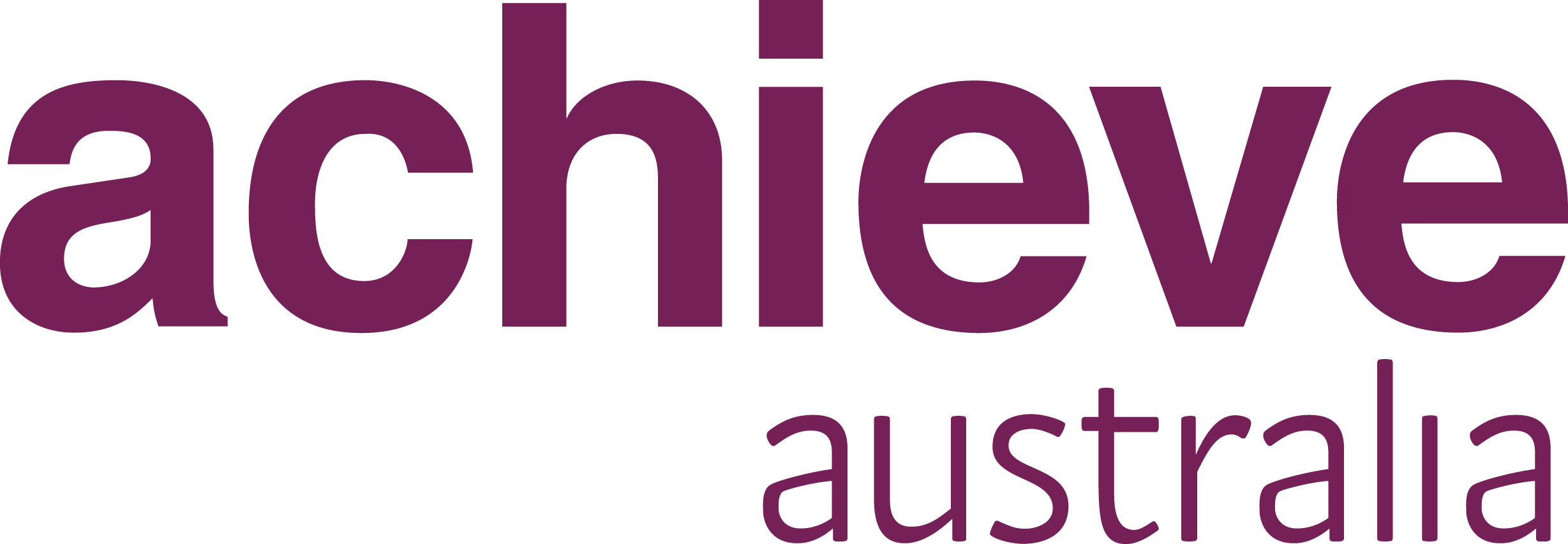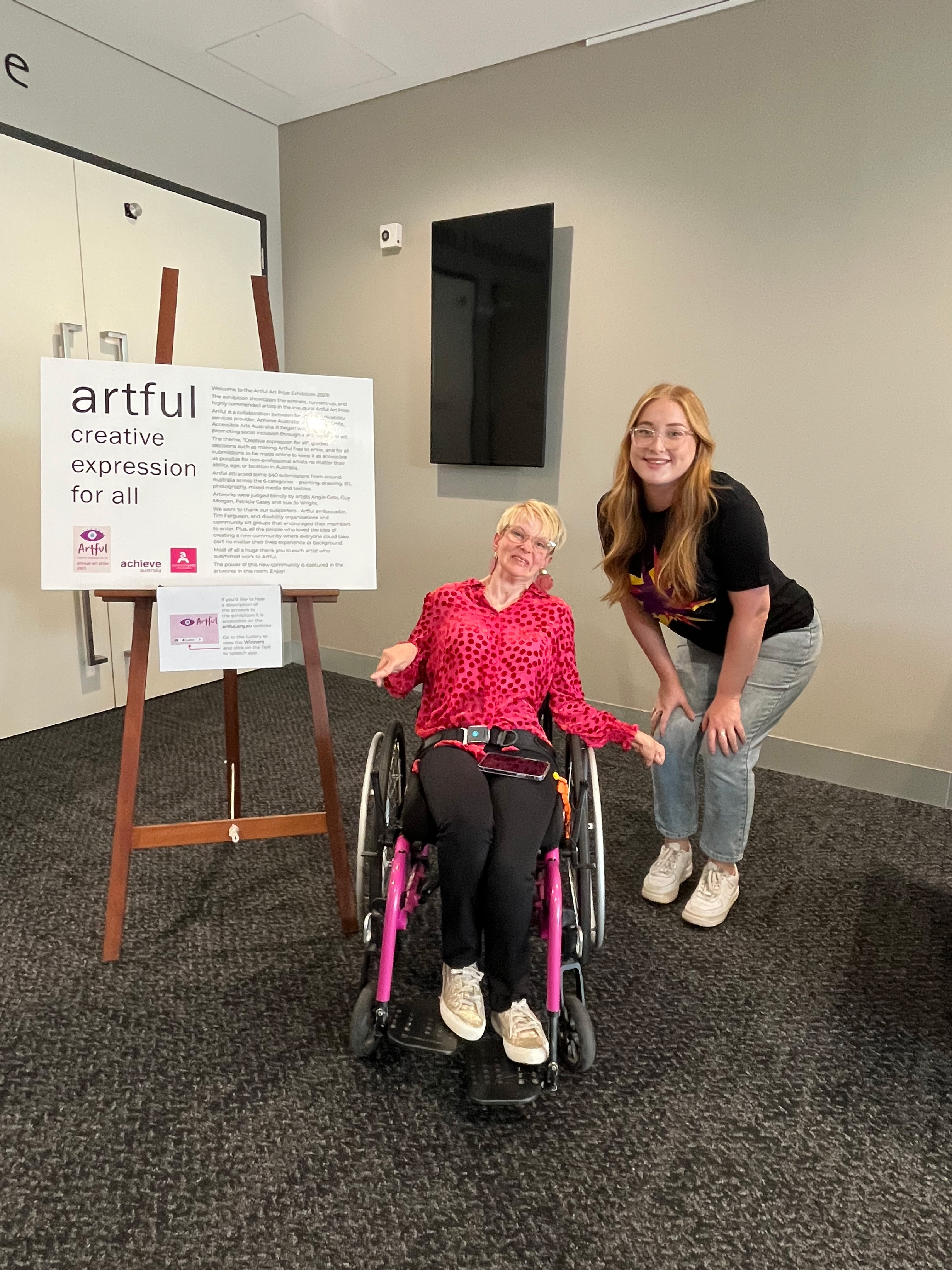By Fi Bridger, Achieve Australia Writer and Researcher
14 December 2023
This is my last blog of 2023, and I am going to tackle the thorny issue of “segregation”. It’s been a hot topic since the Royal Commission into Violence, Abuse, Neglect and Exploitation of People with Disability (the Commission) called for an end to segregation in a range of settings. Let’s take a closer look.
The terms "segregation" and "inclusion" are concepts often used when we discuss how society treats people with disabilities (pwd). Inclusion and segregation span many aspects of life such as education, employment, social interactions, and public spaces. As a pwd, there is nothing we wish for more than total inclusion in society.
Government and many companies and organisations are making efforts to increase inclusion and reduce segregation, but it is not nearly enough. When the Commission published its final report last September it highlighted how we are still in deep when it comes to segregation of pwd, including young people and children in the education system.
The Commission’s final, 12-volume report made 222 recommendations based on 4.5 years of hearings, reports, submissions and powerful testimony from people with disabilities and their loved ones. Amongst those recommendations, 3 Commissioners called for systemic change so young people with disability are educated in mainstream schools and then employed in mainstream workplaces. This Guardian article explains how many advocates were encouraged by the recommendations to push harder for an end to segregation in schools. I believe full inclusion is the only way that children and young people with disability will fulfill their aspirations and potential as fully participating members of our community.
My journey with schooling
I could tell you about many instances where I experienced segregation, but for this blog, I will share an example that was truly detrimental to my life.
My parents were advised that a special primary school catering exclusively to people with disability would be the best fit for me. Ah, wrong! When I reached high school and talked to friends about their primary schooling, I realised I hadn’t learned anything compared to them. Unfortunately, my parents also realised this but too late.
The primary school I attended didn’t teach me how to spell properly or how to edit my grammar and I was only introduced to very basic math. The entire curriculum was very basic and general.
I was put into a box with other children whose intellectual capacity was not on the same level as me. So even though I was capable of learning so much more, I felt that I was not deserving of an opportunity to learn. It was assumed I belonged there. Worse still, when I went to mainstream high school, I was not as ready as my fellow students for my secondary years. This made the transition extremely difficult.
I quickly realised how good mainstream high school was. It enlightened me socially, it challenged my thinking, and I was able to start learning and growing to my full potential.
Just because someone has a physical disability, it doesn’t mean that they struggle intellectually. The assumption about me made through a ‘special school’ lens put me in a box and deprived me of the opportunity to learn at my level of potential. It set me back many years and meant I had to spend countless hours catching up.
Ready for some positive news?
While my school journey started with segregation, I have also experienced great examples of inclusion in my life. My current employer, Achieve Australia, is one of those. My manager, in particular, has gone above and beyond to make me feel included. As a member of the marketing and communications team, I take part in meetings, brainstorming sessions, and staff catch-ups. I have also been asked to join project teams working across the organisation. And I can speak whenever I want to. The focus is on outcomes – not facetime. I can work to my timeline given my physical challenges. I am seen, appreciated, and accepted by my team and other colleagues. I wish all employers could demonstrate this level of inclusivity.
Artful – a new community based on creativity
Achieve Australia is exploring how to promote inclusion beyond its own doors. A recent example is the Artful Art Prize, that launched this year. This national art competition has a mission of showcasing artists with disability and without disability, equally and inclusively. Artful attracted some 640 entries across 6 categories – drawing, painting, photography, mixed media, textiles, and 3-dimensional. People were of all ages, came from different parts of Australia and had widely varying backgrounds. “Creative expression for all” was what everyone had in common.
Do your bit to foster inclusion
Fostering inclusion is not just a moral imperative but also a practical necessity for building a thriving and harmonious society.
Inclusion is a fundamental human right. By actively promoting and implementing inclusive practices, societies can harness the full potential of all its members and enrich the social fabric of the whole by weaving from a variety of perspectives, talents, and experiences.
What are you going to do to foster inclusion in the coming year?
Until 2024, whatever you are celebrating, enjoy, relax and have fun.
Happy New Year!
Explore more topics
- Accessibility
- Achieve Australia
- inclusion
- disability
- belonging
- Community
- Employment
- Advocacy
- The Sewing Basket
- Accessible
- disability employment
- My Life My Say
- Celebrating people we support
- NDIS
- 2022
- Guildford
- Meet our Achievers
- blog
- people with disability
- travel
- women with disability
- Art
- Australia
- COVID-19
- Disability services
- Good nutrition
- Health tips
- Mental wellbeing
- NDS
- Sharing milestones
- Sydney
- achievable
- assistance dogs
- depression
- disability communications
- disability inclusion
- election
- employee of the year
- intellectual disability
- motherhood
- pregnancy
- social inclusion
- support workers

